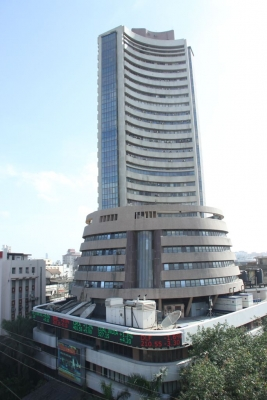New Delhi: India’s market cap is currently the 5th largest globally (US $4.5 trillion) but its weight in global indices is still low at 1.6% (10th rank), foreign brokerage, Jefferies said in a report.
This should change as market free float rises and some weight anomalies get sorted out. Assuming market returns in line with the last 15-20 year history and new listings, India will become nearly a $10 trillion market by 2030 — impossible for large global investors to ignore, the report said.
With a consistent history of 10-12% USD CAGR over the last 10 & 20 years, India is now the 5th largest equity market & market cap will likely touch $10 trillon by 2030. Continued reforms should maintain India’s ‘fastest growing large economy’ status. Strong trend in domestic flows have reduced market volatility and decadal low foreign ownership offers valuation cushion. RoE-focused corporate sector with 167 companies more than $5 billion market cap leave ample choices to investors, Jefferies said.
Rising entrepreneurship/vibrant start-up ecosystem is driving innovation. 10 years of investment downcycle & risk aversion trend has now inverted with housing upcycle and corporate D/E ratio at an all-time low. India is home to 111 unicorns (market value $350 billion) making it the 3rd largest unicorn hub globally after US and China, the report said.
Govt’s focus on developing digital infrastructure, globally the cheapest data rates and the abundant homegrown talent pool have been the key drivers. India is now becoming a services exports hub. Services export (including remittances) now accounts for nearly $450 billion/year. Several large global organisations have 10-20% of their employees based in India including companies like JP Morgan, Intel, NTT etc. Superior digital infra, young & well educated human resources should drive this segment to keep growing, the report said.
RoE-focused corporate sector is a key positive for minority investors. Listed equity market is among the most diversified emerging markets. Strong institutional framework of regulators (SEBI, RBI), intermediaries (responsible asset managers) has helped develop a large domestic investor base. Sustainable investment habits give visibility of $50 billion/year flow into equities from domestic investors which will likely keep the valuations on the expensive side but also reduce market volatility, the report said.
India will be 3rd largest economy by 2027. Over the last 10 years, India’s GDP has grown by 7% CAGR in USD terms to $3.6 trillion – jumping from the 8th largest to the 5th largest economy. Over the next 4 years, India’s GDP will likely touch $5 trillion making it the 3rd largest economy by 2027, overtaking Japan and Germany, being the fastest growing large economy with the tailwinds of demographics (consistent labour supply), improving institutional strength and improvement in Governance.
(Sanjeev Sharma can be reached at Sanjeev.s@ians.in)
–IANS


Comments are closed.